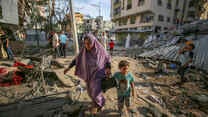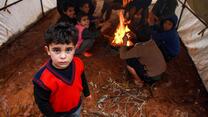Since the start of the conflict, the health system in Syria has seen unprecedented levels of violence against its facilities, staff, and patients. This violence continues to have a devastating impact on the lives of millions of Syrians. Households recently interviewed by the IRC in the northeast and northwest of the country highlight the difficulties they face when trying to access a health system damaged by 11 years of violence, an economic crisis, and the COVID-19 pandemic.
Out of more than 1,380 reported attacks, Physicians for Human Rights (PHR) has documented and verified 601 attacks since the start of the conflict, on at least 350 health facilities. Syria has accounted for 25% of all recorded killings of health workers in conflict areas in the past 5 years.
With regard to impact on the health system, out of the almost 1,800 available public health centers, 45% were not fully functioning as of September 2021. It is also estimated that over 50% of physicians have left northeast Syria. As for the impact on people, 65% of households interviewed by IRC in northeastern Syria (NES) since the start of 2021 reported that they faced difficulties accessing health care. Almost half of clients and patients interviewed by IRC in 2020 in Aleppo and Idlib in northwestern Syria (NWS) said they were afraid to access medical care for fear of an attack.
The factsheet includes a number of recommendations: Increasing humanitarian access, sufficiently funding health care provision, reaffirming the importance of adherence to the International Humanitarian Law and ensuring accountability, and lastly strengthening monitoring and reporting.

